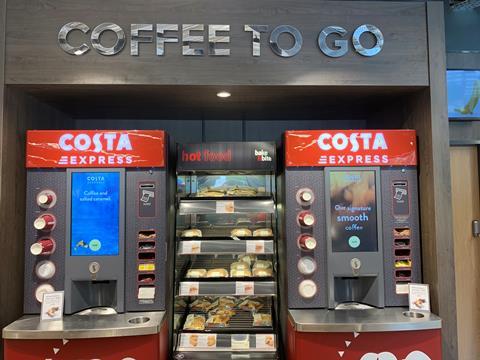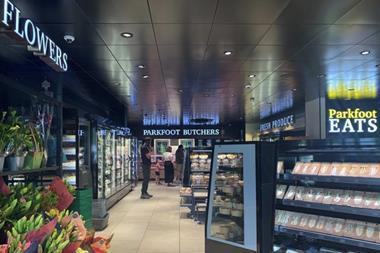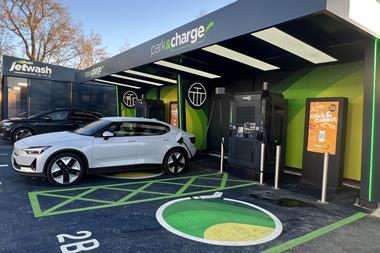
Nobody likes reading pages and pages of Terms and Conditions but when it comes to insurance they can be the difference between being paid out for a claim – or not!
Jack Yianni, specialist insurance broker at Howden, recalls one horror story: “I was approached by a prospective client who had a suffered a ‘contamination of fuel’ claim. The fuel had inadvertently damaged five vehicles, resulting in more than £20,000-worth of damages. The prospective client attempted to claim through their own insurance, only to find they didn’t have the cover, and as a result, the business had to cover the cost themselves.”
The good news in this sorry tale is that Yianni later provided the client with a policy covering fuel contamination. “We even managed to agree a small premium saving,” he says, adding: “Once more, this reiterates the importance of using a specialist broker who has access to the right panel of insurers.”
Typically forecourt operators require public liability to cover injury or property damage to the public and employers’ liability to cover costs following an injury to an employee. Then there’s business interruption, which provides cover for loss of income when a forecourt cannot operate after suffering an insured event such as a fire or flooding. Buildings cover includes cover for pumps, tanks and the forecourt canopy. Shop and general contents insurance covers it for theft, plus accidental and malicious damage. And then there’s stock of fuel cover, including theft, environmental damage and contamination.
Yianni says stock of fuel is the cover that’s most often overlooked. “Many forecourt operators assume their insurance will automatically provide cover for any liability associated with fuel sales, such as environmental damage or damage to customers’ vehicles after fuel has been contaminated. However, unless the operator has taken out a specialist policy with these industry-specific extensions, they won’t typically have this cover. It’s important that a filling station owner speaks with a specialist broker who understands the unique risks associated with fuel sales, who can provide genuine advice, arranging a policy that provides adequate cover.”
Niraj Mamtora, director at Forum Insurance, says you won’t find two forecourt sites that are identical, which means insurance policies need to be bespoke to each site. “Having a bespoke forecourt insurance policy will be the difference between peace of mind and sleepless nights when an incident occurs.
“The most valuable part of your site is the convenience store building, fuel pumps, underground storage tanks, canopy, EV chargers and other vital infrastructure. These all need to be insured with the correct coverage levels and insurance extensions.”
Specifically speaking about environmental liability cover, Mamtora says: “With most underground tanks being old they are more susceptible to leak fuel into the surrounding ground. When fuel leaks into the ground around your site not only do you lose the fuel stock you have paid for but there are large liability claims that arise. Without the correct cover you’ll find it very expensive as regulatory authorities will impose clean-up costs and fines; then there is the third-party damage, nuisance claims and legal expenses involved.”

Additional income
Mamtora also says retailers need to remember to extend cover to their additional income streams such as car washes, coffee machines, food-to-go concessions and parcel lockers – which can sometimes be forgotten. These require cover as they each carry liability risks and will cost you to repair/replace them.
“Operators typically forget to notify us of the cash machine on their site but not including facts about the business is called misrepresentation and can cause insurance claims to be rejected,” he explains.
Yianni says he sees many claims for vehicle impacts into forecourt pumps and canopies. “Often the vehicle driver’s insurance will be liable to pay for any damages and associated loss of earnings. However, it’s important that the filling station’s insurance broker is proactive in making sure claims are settled promptly and full costings are recovered from the vehicle driver’s insurance.”

Your forecourt insurance expert
Forum Insurance are UK forecourt insurance specialists and have been securing long term success for forecourt owners and operators for over three decades. Instead of spending hours researching policies and deciphering fine print, you have a knowledgeable expert from Forum Insurance by your side, guiding you through every step of the process. At Forum Insurance, they’re not tied to any single insurance company. Instead, they work for you, scouring the market to find the perfect blend of coverage and cost. Whether you’re a forecourt owner or operator, a single or multiple site, Forum Insurance has got you covered.
They’re more than just policy finders, they are your advocates. When you have a claim, Forum Insurance is there to ensure you receive fair treatment and maximum compensation. They speak the language of insurance companies, making sure your voice is heard and your rights are protected.
So why stress over insurance decisions when you don’t have to? Let Forum Insurance handle the hard work while you focus on what matters most. Contact them today and experience the peace of mind that comes from having Forum Insurance in your corner.
Most of us know from personal experience that insurance premiums have gone up as companies face higher claims costs due to the rising price of labour and materials. And Mamtora realises that everyone is trying to save money, but he warns: “Insurance is the one area we don’t recommend you save money by being underinsured. Your insurance policy will have a clause called the ‘averages condition’ – this clause results in insurers reducing your claim pay out by the same percentage you’re underinsured by. This means that as an operator you’ll be dipping into your profits to make up for any losses from a reduced claim.”
Both Yianni and Mamtora says that insurers do pay out – as long as the policy has been arranged in the correct way, with the correct covers requested.
“As long as the ‘Statement of Fact’ document is honest, then you’ve got nothing to worry about. It’s these facts that you state about your business that form the contract for the insurance policy. An insurance broker will have the experience and expertise to guide you through this process and correctly represent your business so that a claim is paid out,” says Mamtora.
Yianni adds: “The filling station insurance market is limited, with only a handful of specialist insurers providing adequate cover. Many brokers can arrange a basic shop and forecourt insurance policy with a number of insurers, but it’s worth considering that these policies often exclude stock of fuel, contamination and environmental liability cover. We recommended that filling station businesses engage with a specialist broker who understands the filling station insurance market and only engage with specialist insurers who provide appropriate cover.”

Top tips
• Use a company that has experience with forecourts
• Make sure you disclose all relevant information to your insurers
• Ensure all team members are trained on how to respond to different types of incidents.
• Inform your insurance provider that an incident has occurred as soon as possible.
• Have a designated individual on-site to take charge and coordinate all actions when a claim is made
• Collect as much evidence as you can of the event(s) including; documentation, eye-witness statements, photos, videos and anything else that’s relevant.
• Communicate to third parties via signage or announcements that an incident has occurred and what precautions you have taken.
• Ask yourself whether any actions be taken to mitigate any further damage or risks?
• Review your insurance cover regularly. If you make any changes across your forecourt you may well need to make changes to your cover



























